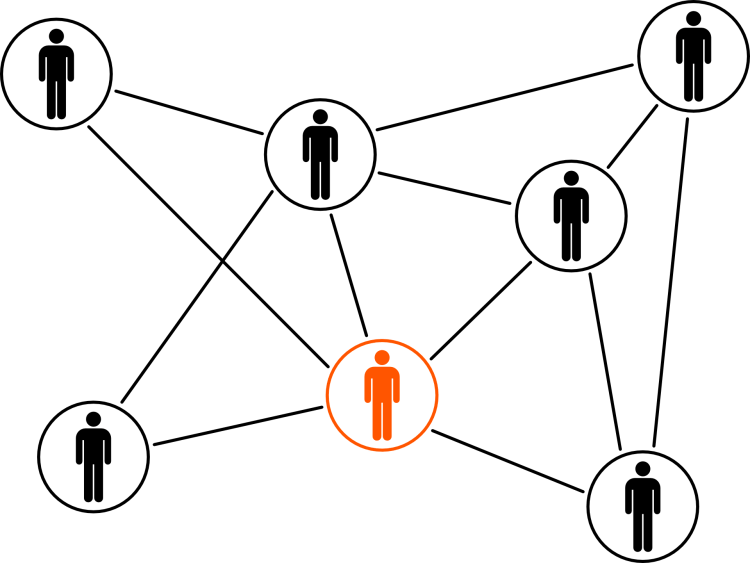
As I begin reflecting on the benefit of networking and what learning networks I would join, I had some difficulty. I realized I needed to do a little more research to determine what is considered a learning network so I started by performing an internet search.
Stanford Social Innovation Review says “Learning networks are a form of collaboration that enables groups of stakeholders to cultivate connections across communities and organizations, and to strengthen a whole system simply by focusing on the potential for participants to share information and learn from one another” (Ehrlichman & Sawyer, 2018).
As soon as I read this definition, I immediately realized that I am already actively participating in several learning networks through my professional organization. I am currently a member of the following learning networks:
Technology in Advising Community
The purpose of NACADA’s Technology in Advising Community is to help academic advisors, faculty advisors, and advising administrators understand the impact of using technologies in advising, including:
- Online communication & virtual advising
- Degree audits & web registration
- Student information systems & electronic advising notes
- Social and connected spaces for innovative staff/faculty resources
- Understand the ideas and trends of how technology is being utilized in higher education
Our activities include:
- annual review and sponsorship of national conference proposals
- solicitation of national and regional conference presentations and workshops
- compiling web resources for advisors, arranged by topics
- organizing Twitter chats throughout the year
This community seeks to serve as a central resource and clearinghouse for information about innovations and issues in academic advising technology. Through our webpage, listserv, and our social media platforms including our NACADA Technology in Advising Facebook Group, on Twitter (using the hashtag #AcAdv or #AdvTech), and at national and regional conferences, we actively seek to encourage NACADA members to engage in topical discussions and activities related to the uses of technology in advising.
Advising community for wellbeing and advisor retention
The Well-Being & Advisor Retention Advising Community community exists to encourage advisors to address wellbeing and self-care with their students, while also encouraging the same for advisors. This community thus hopes to decrease burnout amongst advisors and increase retention in the field. This community views wellbeing as a holistic and human need for students and advisors alike, and views self-care as ensuring student and advisor needs are met. This community hopes to encourage discussion among advisors about integrating wellbeing and self-care into advising appointments with students, while also encouraging institutions to consider the needs of their advising staff, and advisors to consider their own self-care. This community will do this by conducting research of both advisors and students, and considering and creating innovative approaches for both students and advisors.
Our Advising Community has identified the following areas of focus:
- Research – Coordinate academic research and review existing works for the committee’s use
- Innovative Practice: Students – Focus on new/emerging practices in incorporating wellness/wellbeing into the advising relationship, contributing to student retention/success
- Innovative Practice: Advisors – Focus on new/emerging practices in incorporating wellness/wellbeing into an advisor’s work, contributing to staff retention/success
- Regional Liaisons – Connect with regional chairs and conference chairs to incorporate wellness/wellbeing into regional events/planning; reach out to region chairs to find out what the region needs are in the areas of wellness and retention and the ways our community can assist them.
Advising Community on Distance Advising for Online Education
This community is dedicated to providing advisors with resources and insight into best practices relating to distance advising in online education. Advisors within this community can network with professionals who are responsible for providing advising services to students whose primary method of instruction is online.
Establishing an essential relationship with a student can be difficult in the online world of advising and distance learning. The Advising Community on Distance Education Advising hopes to become the community where advisors in any discipline can come network and share best practices regarding advising students whose primary method of instruction is online.
Goals:
- Recruit members for the community address book and utilize these individuals to assist with research, writing, and presentation proposals for NACADA conferences.
- Create an interactive online advising guidebook and publish sections to the commission website.
- Host at least three webinars for the 2016-2017 year relating to advising online students.
- Create a Facebook page to increase commission awareness and inform advisors of best practices relating to distance advising for online education.
Benefits: https://nacada.ksu.edu/Community/Advising-Communities/Get-Involved-Benefits.aspx
In addition to these communities available through NACADA, I also frequently participate with TEXAAN. Both of these professional organizations believe strongly in connecting advisors with others within the advising profession. Some are professional advisors, some are faculty advisors, and still others are administrators; but we all find ways to learn from one another. For example, both these organizations and individual learning networks try to hold monthly coffee and connect sessions where topics of different interests are covered. These learning networks have been extremely helpful, especially through the shutdowns of 2020. Our communities have held frequent webinars about how each of our institutions was addressing technology concerns, how we were helping our students navigate online learning, and pushed one another to remember self-care through such a challenging event. I have participated in several online discussions within my profession.
The benefit of these learning networks cannot be expressed enough. These networks provide us with a safe space to share the challenges (and victories) we each face guiding students through their academic paths. We have collaborated on solutions and new perspectives by maintaining a safe space to bring our challenges to one another.
Reference
Ehrlichman, D., & Sawyer, D. (2018, July 27). Learn before you leap: The catalytic power of a learning network (SSIR). Stanford Social Innovation Review: Informing and Inspiring Leaders of Social Change. Retrieved June 21, 2022, from https://ssir.org/articles/entry/learn_before_you_leap_the_catalytic_power_of_a_learning_network#:~:text=Learning%20networks%20are%20a%20form,and%20learn%20from%20one%20another.

2 thoughts on “Networking”